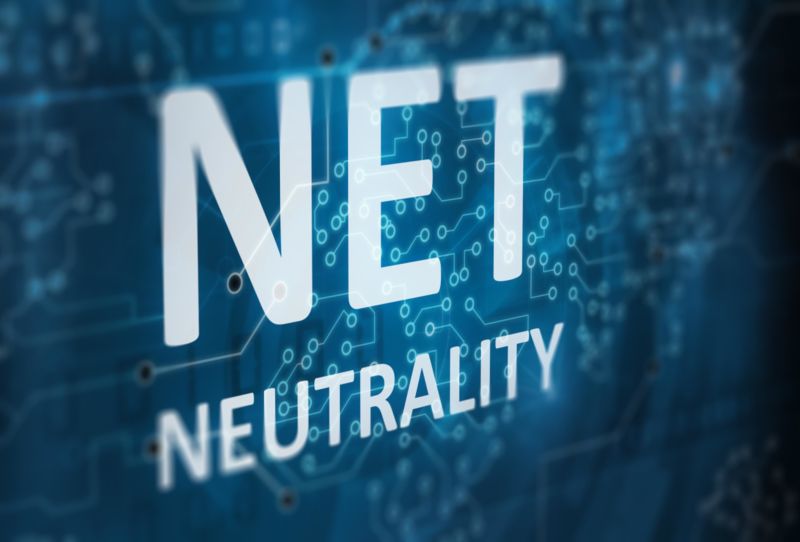Stung By 3 Court Losses, ISPs Stop Fighting California’s Net Neutrality Law

The broadband industry has abandoned its lawsuit against California’s net neutrality law after a series of court rulings went against Internet service providers.
The four broadband lobby groups that sued California “hereby stipulate to the dismissal of this action without prejudice,” they wrote in a filing Wednesday in US District Court for the Eastern District of California. The ISP groups are ACA Connects (formerly the American Cable Association), CTIA-The Wireless Association, NCTA-The Internet & Television Association, and USTelecom.
“After losing three times in federal court, the ISPs have finally realized that they can’t overturn California’s net neutrality law and that they should just stop trying,” Stanford Law Professor Barbara van Schewick wrote, calling the development “a historic win for Californians and the open Internet.”
“Thanks to the hard work of California’s attorney general and the wide coalition that helped defend the law in court, the ISPs gave up instead of fighting this to the Supreme Court,” she also wrote.
Preliminary injunction denied three times
ISPs had been seeking a preliminary injunction to block the law before the case went to trial but were repeatedly unsuccessful. First, US District Judge John Mendez refused to grant the requested preliminary injunction in February 2021, allowing California to enforce its net neutrality rules.
ISPs then appealed to the US Court of Appeals for the Ninth Circuit, but in January 2022, a three-judge panel unanimously upheld the lower court’s ruling. Finally, the ISPs asked for an en banc hearing with all the court’s judges. Zero judges on the 29-seat appeals court thought the broadband industry’s petition for a rehearing was even worth voting on.
“The full court has been advised of the petition for rehearing en banc, and no judge has requested a vote on whether to rehear the matter en banc. The petition for rehearing en banc is denied,” said the order against the ISPs on April 20.
ISPs could have proceeded to a trial in US District Court, as the denial of a preliminary injunction doesn’t prevent litigation from continuing. But the denials from appeals court judges combined with Mendez’s criticism of the ISPs’ legal arguments apparently persuaded the lobby groups not to go forward.
“The ISPs threw in the towel today on their challenge to California’s net neutrality law,” Andrew Jay Schwartzman, senior counselor for the Benton Institute for Broadband & Society, said in a statement after yesterday’s dismissal. “They were forced to accept what most observers had seen: in the wake of the Federal Communications Commission’s decision disclaiming interest in treating broadband access service as subject to federal regulation, the states were freed to adopt their own requirements.”
After the dismissal, the industry groups released a statement saying that “broadband providers are united in support of an open Internet” and “committed themselves to working with Congress and the Federal Communications Commission to develop a federal approach for resolving the issues,” according to Reuters. But despite claiming to support net neutrality principles, broadband lobby groups have consistently opposed net neutrality rules at both the federal and state level.
Judge: Law doesn’t support ISPs’ arguments
In his oral ruling against the preliminary injunction, Mendez said, “I don’t find that the plaintiffs have demonstrated a likelihood of success on the merits at this stage of the litigation.”
ISPs “asserted that the Communications Act gave the FCC the exclusive authority to regulate interstate communications, leaving the states only able to regulate purely intrastate communications,” Mendez said. “But the court finds that the provisions of the Act that the plaintiffs rely on do not support the arguments that have been raised.”
California’s net neutrality law is similar to the federal rules that were enacted by the FCC during the Obama administration and then repealed during the Trump era. California prohibits fixed and mobile ISPs from blocking or throttling lawful traffic and says ISPs may not require fees from websites or online services to deliver or prioritize their traffic to consumers. California’s law also bans paid data cap exemptions (so-called “zero-rating”) and says that ISPs may not attempt to evade net neutrality protections by slowing down traffic at network interconnection points.
READ MORE HERE



